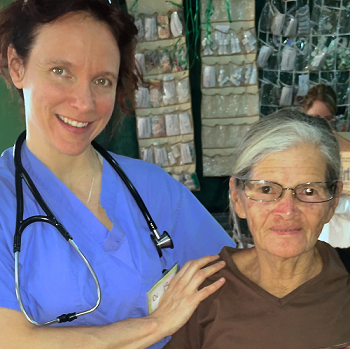According to the US Bureau of Labor Statistics, around 87% of nurses are women (as of 2021). However, nursing is an in-demand profession that should appeal to all. If you are a man thinking about donning the scrubs, today’s post from HealthJobsnationwide.com is for you.
Why Nursing?
There are many reasons to become a nurse. These include career stability, a quick track to earning a livable income, and professional flexibility.
Nurses are needed in all sorts of healthcare environments, from assisted-living centers to schools. As such, there are many opportunities for nurses. In other words, you won’t be stuck in a single type of environment, and you can likely move from one location to the other with very little – if any – interruption to your income.
Educational requirements, while stringent, are not as lengthy as to become a physician. Many nurses make a salary in excess of $75,000 per year, which is enough to provide you with a comfortable quality of life. And thanks to the flexibility of online nursing degree programs, you can continue to work in your current job while you strive for your nursing degree. Flexible and affordable options allow you to pursue a bachelor’s degree in nursing covering a range of functions and can be completed within 2.5 years – check it out for more info.
As for career flexibility, there are few positions available that give you so many options for specialties and even scheduling. Clipboard Health notes that nurses are so needed that you might even be able to work weekends only or enjoy living and working in a different state every few months. You can easily transition into a different type of role or schedule when you choose to start a family and want to be settled in a more stationary environment.
Business Opportunities
As a nurse, you are not defined by someone else’s time clock. You also have plenty of opportunities to become an entrepreneur with a medical twist. A few ideas here include:
-
-
-
- Launching your own senior care service. Many seniors today choose to age in place, meaning they stay where they are most comfortable. These individuals often require the assistance of medical and nonmedical personnel.
- Build a medical app. When you have medical and technological skills, you can take these and turn them into a medical app that people can use to better their quality of life. For example, an app that helps people monitor theircalorie intake or stress levels.
- Write your own business courses. If you’re passionate about teaching others, consider writing your own text or video training courses. You may be able to earn up to $5,000 per month doing so.
- Skills Needed to Be a Nurse Entrepreneur
-
-
If you like the idea of owning your own business in the medical profession, take the time to evaluate your current skill set. Nursing entrepreneurs must be highly organized, able to build an effective team, passionate, dedicated to your patients/clients, sympathetic to those suffering, and physically capable of standing on your feet 12+ hours a day.
Being a nurse is a great opportunity for women and men alike. If you’re wanting to start a family with a job that gives you the flexibility to be the best father you can be, nursing is for you. Further, when entrepreneurship is your idea of the future you want to build for yourself, working in the medical field gives you plenty of options. To get started, make sure you get the education you need, and then evaluate your skills and desire to help others.
Image via Pexels








